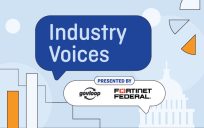Welcome to GovLoop Insights Issue of the Week with Chris Dorobek where each week, our goal is to find an issue — a person — an idea — then helped define the past 7-days… and we work to find an issue that will also will have an impact on the days, weeks and months ahead. And, as always, we focus on six words: helping you do your job better.
Each day on GovLoop Insights’ DorobekINSIDER, we interview the guests that matter to you. On Fridays, we like to take a step back and look at the stories from the week that rose to the top.
- Do vague program requirements cause projects to fail? That’s the question that ESI International wants to know. They surveyed thousands of program managers. We took an in-depth look at the results.
- We talk about making government run faster, smoother and more efficiently all the time. Now calling 911 in an emergency is getting more effective. Smart911 allows citizens to enter information through a secure web site that they want to make available to 9-1-1 operators in the event they call 9-1-1. We learned how it works.
- Every year thousands of patients die due to preventable medical errors. One man’s leading an intra-agency team to eliminate those mistakes. His work has made him a Service to America Medal Finalist. We learned how he did it.
- Ex-Federal — It’s like the match.com site for contractors and ex-feds. The site allows job seekers to post their resumes and apply to contracting job postings. We learned how the matches work.
- Times are changing — and that is true for chief human capital officers. What are the challenges ahead? We looked at a new report with the Partnership for Public Service.
Don’t forget we have an e-mail newsletter — you can keep up with what you need to know from the DorobekINSIDER
e-mail newsletter.
But our issue of the week: looks at feds in the midst of this presidential election. The Washington Post’s federal report Eric Yoder says the battle between Republicans and Democrats over the size and scope of the government is heating up and it’s put feds in the middle — debating the number of government workers — pay and benefits. He told Christopher Dorobek that it likely to continue.
Politicians are fighting over the:
Size: How many federal employees are there.
Cost: How much each fed is being paid compared to their public sector counterparts. “But there is no real way to compare pay,” said Yoder
Yoder says, “The White House budget plan proposed to increase the required contributions from all employees by 1.2 percent of salary, phased in over three years. House Republicans upped the ante by proposing a 1.5 percent increase as part of a bill extending unemployment benefits. The final version of that law left current employees untouched but required a contribution increase of 2.3 percentage points from those hired into government starting next year, unless they have at least five years of prior federal service. But higher contributions by current employees have remained under active consideration, with the House later passing a deficit-cutting bill calling for a 5-percentage-point increase over three years. That plan stalled in the Senate, as had an earlier House Republican budget seeking to reduce the workforce by 10 percent over four years through a partial hiring freeze.”
Weekend Reads: We know weekend time is precious, so we try to pull some stories throughout the week that are worth your time… and may just plant a seed for new ideas
- Innovation isn’t just for the start-ups. Harvard Business Review writes that more large companies are borrowing a page from the venture capital-backed start-up revolution, writes Scott D. Anthony for the Harvard Business Review, “embracing open innovation and less hierarchical management” and identifying entrepreneurs who are able to use large company strengths like distribution and scalability to build new businesses. Anthony describes how pacemaker firm Medtronic tapped into pioneering Indian health-care models, built diagnostic camps for low-income residents and created a medical devices financing plan to enter the Indian market, once out of reach because of the low rate of health insurance. To innovate, companies must recognize catalysts in their midst and build an environment that tolerates failure, he writes. On the flip-side, future entrepreneurs need to realize “people changing the world today are as likely to be in corporate cubicles,” as in Silicon Valley’s next start-up.
- How to be productive during the summer. We’re at the end of August — it is getting quiet around the office. If you are there working away, The Guardian in the UK includes Steps to have a productive summer. For example, ou could use the time to take stock, improve your contacts, and pursue your interests. For example, covering for an absent colleague might give you the chance to get involved in new projects that play to your strengths and keep the adrenaline flowing, suggests career coach Corinne Mills. Summer is a great time to be nosy. Ask a colleague before they go on vacation if they would like your help with anything. Answer their phone and try to get involved. Do those things that you don’t have time for otherwise.
- Overcoming risk. It is often said that the government is risk averse… and we all know why. Yes, the beatings will continue until morale improves. But we also know that being risk adverse isn’t only an issue for the public sector. Regardless, The Wall Street Journal’s CFO Journal this week included a synopsis of research from McKinsey explaining how you get managers to overcome their bias against risk and explore innovative ideas. They say that many mid-level managers would rather play it safe, opting for goals that are reachable. But McKinsey says that senior executives need to ask for project ideas that are risky, but also have a potential of a high reward. And one needs to assess how well people do into the evaluation criteria — and be careful not to merely punish if and when somebody takes on that risky project. But McKinsey also says it needs to be a broad effort to change how an organization looks at risk.
- You know I love the Mars rovers and earlier in the week, we highlighted NASA workers on the NPR quiz show, Wait Wait Don’t Tell Me! And you have to check out the NASA Mars rover team’s parody of We’re Sexy and We Know It — yes, it is We’re NASA and We Know It!




Leave a Reply
You must be logged in to post a comment.